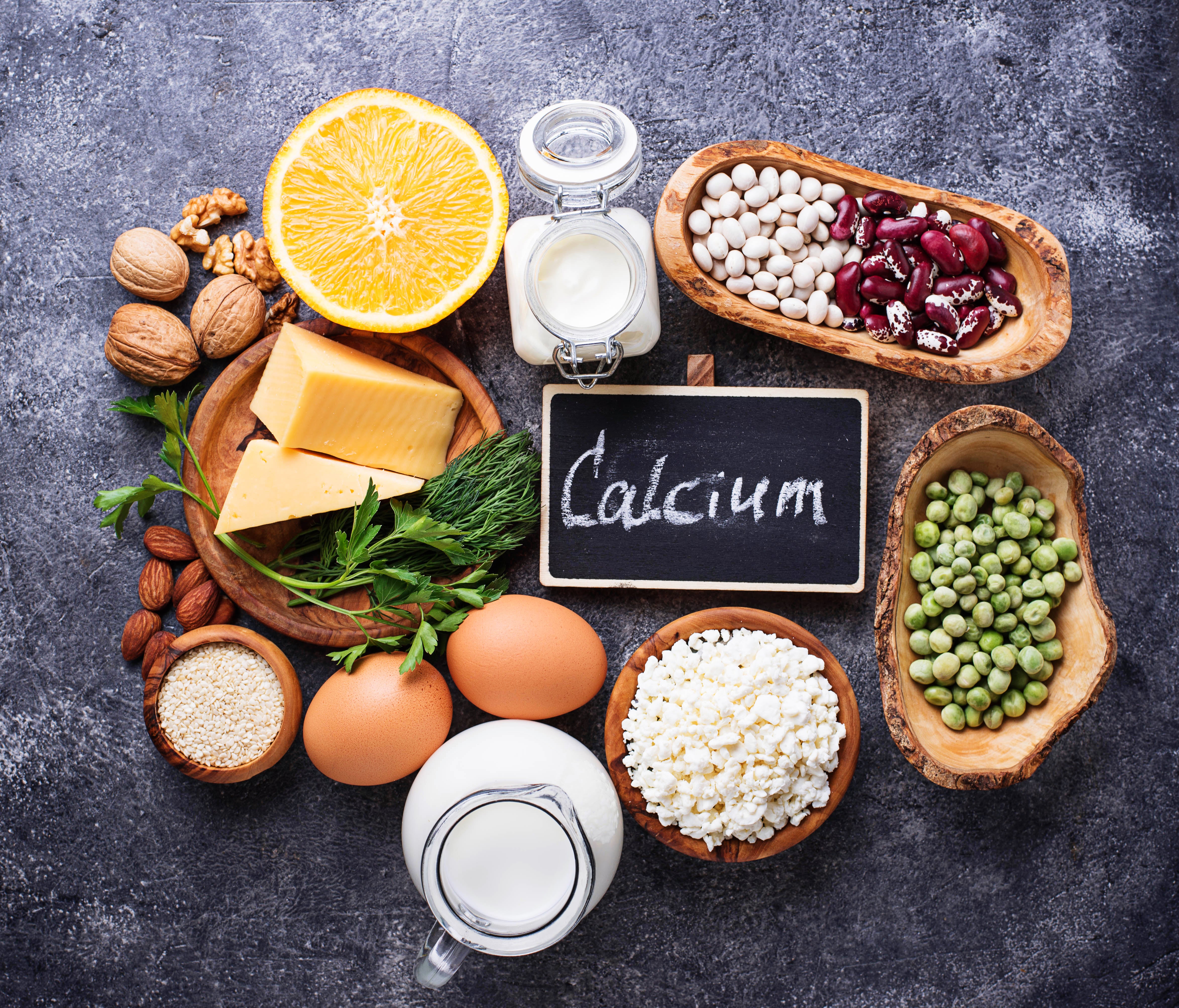
Calcium, without any debate, is one of the crucial minerals our body needs for healthy sustenance. Calcium is involved in several extremely important biological processes like the formation of bones and teeth, blood coagulation (essential to stopping excess bleeding from wounds), maintenance of blood pressure, regulation of heartbeat, nervous function, muscle contraction, hormonal balance, and many more. Thus, ensuring proper calcium intake is a matter of concern.
This article will help you get a deep insight into everything related to calcium and calcium supplements.
Adequate amounts of calcium (around 1000 mg/day - daily dose of calcium for adults) can be included in the diet by regularly and sufficiently consuming calcium-loaded foods like milk, yogurt, cheese, green leafy vegetables, beans, sardines, etc.
Apart from these popular calcium-rich foods, some other foods are also surprisingly impressive sources of this mineral. Let's see which are they.
11 Foods you never thought were rich in calcium
- Dried figs - Around 8-10 dried figs may provide you with 240-250 mg of calcium. It also has other nutrients like potassium and vitamin K, which are crucial for calcium metabolism.
- Chia seeds -Two tablespoons of chia seeds will provide around 180 mg calcium.
- Tofu -Most manufacturers use calcium salts to coagulate the soya milk for making tofu. Thus, tofu is found to have calcium of around 280-850 mg per half cup.
- Almonds - A cup of whole almonds is found to have around 380 mg of calcium.
- Sweet potatoes - A medium-sized sweet potato might have around 55-65 mg of calcium.
- Broccoli - One cup of broccoli might have around 85-90 mg calcium.
- Sunflower seeds - One cup has around 110 mg of calcium. They are also a good source of magnesium, which plays a vital role in calcium absorption and assimilation.
- Oranges – An orange might have around 80 mg of calcium. Nowadays, orange juices fortified with calcium are available, which might have as much as 300 mg of calcium.
- Sesame seeds – About a tablespoon of sesame has around 90 mg calcium. Regular consumption of sesame seeds is proven to help manage conditions like osteoporosis.
- Okra - Half a cup of cooked okra might have around 60 mg calcium.
- Edamame - One cup of edamame might have about 100 mg of calcium.
Sometimes, we may find it challenging to meet the daily calcium requirement through diet alone. Also, specific life stages like adolescence, pregnancy, lactation, post-menopause, and old age increase calcium requirements. Now we can consider another excellent option for calcium intake – calcium supplements! Let's have a look at some remarkable benefits of including calcium supplements in your routine.
6 Major benefits of taking calcium supplements
- Calcium supplements are often combined with other nutrients like magnesium, vitamin D, or vitamin K. All these nutrients, especially vitamin D, ensure optimal intestinal absorption of calcium. Magnesium and vitamin K, on the other hand, are the ones that direct the absorbed calcium correctly into the bones and teeth rather than other tissues.
- Some studies point to calcium supplements' role in fat loss.
- Calcium supplements are the easiest ways to ensure you meet your daily calcium requirement, especially for post-menopausal women and older adults.
- All natural calcium supplements may also help to reduce the risk of colon cancer, according to some research studies.
- Ensuring adequate calcium will keep your body from draining calcium out of your bones and teeth, providing them strength.
- Some studies suggest calcium supplements, significantly fish bone calcium supplements improve metabolic markers like inflammation markers and blood pressure.
Also Read: Top 10 Ways to Keep Your Joints Healthy and Pain-Free
Possible risks of taking calcium supplements
Arbitrary intake of calcium supplements without proper professional guidance and consumption of low-quality calcium supplements, which have no other essential nutrients like magnesium, vitamin D, or vitamin K, required for optimal transportation, are the primary cause of these possible dangers. It's also to be noted that there have to be more profound studies conducted to confirm these calcium supplement side effects, but we'll discuss them briefly anyhow.
- According to some studies, excess calcium intake might increase the risk of heart and vascular ailments. This is mostly due to calcium deposition in such tissue, which then subsequently calcifies and stiffens. Choosing a good quality marine calcium supplement with vitamin K2 (better if it is in MK-7 form) will help you address this issue significantly.
- High calcium content (above 2000 mg/day) in the body might lead to the development of prostate cancer. This might be because of the downregulation of vitamin D by excess calcium, paving the way for uncontrolled cell multiplication in the prostate.
- Deposition of excess calcium in the kidneys might cause kidney stone In individuals with a history of kidney stones, calcium supplements might further deteriorate the condition.
There we are! We hope this brief write-up might have helped you better understand this ace mineral. If you want to know something more, don't feel shy to comment below. We'll also be glad to suggest you some best calcium tablets for bones.
